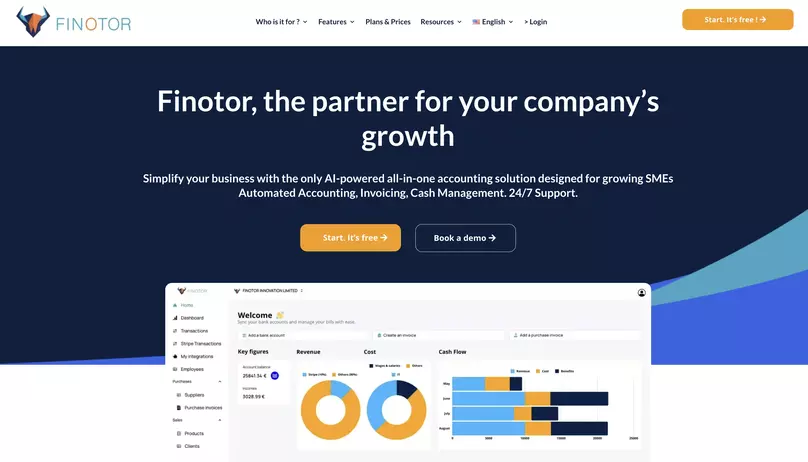Contents
Part 1: The Basics of Bookkeeping for Entrepreneurs
Understanding the Fundamentals of Financial Management
For entrepreneurs embarking on the thrilling journey of business ownership, understanding the fundamentals of financial management is not just beneficial—it’s crucial. Bookkeeping, at its core, is the systematic recording of financial transactions. It’s a cornerstone for healthy financial management, allowing business owners to track income and expenses, maintain accurate financial records, and comply with legal requirements. Knowledge in this area is the bedrock of strategic decision-making, helping you understand where your money is going and how your business is performing. To delve deeper into the intricacies of bookkeeping, interested readers may find a wealth of information here.
Setting Up Your Bookkeeping System
Setting up a bookkeeping system is the first practical step in managing your business finances. This involves deciding whether to use a traditional spreadsheet, a software solution, or a combination of both to track your financial transactions. Entrepreneurs must choose a system that not only fits the size and complexity of their business transactions but also offers scalability for growth. An effective bookkeeping system should provide clear and organized records of all financial activities, ensuring that they can be easily accessed for reporting, analysis, or auditing purposes. For a foundational guide on setting up your bookkeeping system, click here.
Essential Bookkeeping Tools and Software
The right tools and software can transform bookkeeping from a tedious chore into a streamlined, efficient process. There are myriad options available, from simple apps for tracking expenses to comprehensive accounting platforms that offer real-time financial insights. Selecting the appropriate bookkeeping software is critical for entrepreneurs, as it can automate most of the manual work involved in financial tracking and reporting. Essential features to look for in bookkeeping tools include ease of use, integration capabilities with other systems, secure data storage, and a track record of reliability. For businesses looking to integrate their financial tools for enhanced bookkeeping ease, Finotor’s all-in-one solution could be a game-changer.
Part 2: Daily Bookkeeping Practices for Business Success
Recording Transactions: A How-To Guide
One of the cornerstones of effective bookkeeping is the diligent recording of all business transactions. This includes every purchase, sale, payment, and receipt. Entrepreneurs should maintain a consistent approach to recording transactions, ensuring that each one is captured in a timely and accurate manner. This could be through manual entry into a ledger or using digital tools that facilitate more efficient data capture.
Managing Invoices and Receipts Effectively
Handling invoices and receipts is critical to maintaining a clear financial picture of your business. To manage these documents successfully, it is important to have a system in place for tracking outstanding invoices, processing payments, and storing receipts for future reference. Failure to keep up with these tasks can lead to financial discrepancies and tax filing issues. Using cloud-based storage solutions can help you access your financial documents from anywhere, at any time.
Reconciliation Processes and Why They Matter
Reconciling your books is a process that should not be overlooked by entrepreneurs. It involves comparing your internal financial records against bank statements and other external financial data to ensure consistency and accuracy. This process, crucial for detecting discrepancies, potential fraud, and ensuring that your financial data is up to date, is fundamental to maintaining the integrity of your financial statements. To learn more about the importance of bookkeeping, refer to this detailed bookkeeping definition.
Part 3: Utilizing Technology for Efficient Bookkeeping
How AI and Machine Learning Are Changing Bookkeeping
Artificial intelligence (AI) and machine learning are revolutionizing the field of bookkeeping. With these technologies, tasks that once took hours can now be completed in a fraction of the time. AI algorithms can categorize transactions, detect anomalies, and even predict future financial trends. This not only speeds up the bookkeeping process but also increases accuracy and provides valuable insights for entrepreneurs.
Integrating Your Financial Tools with Finotor
Finotor’s all-in-one solution for financial management allows for seamless integration with your existing banking systems and platforms like Stripe and WooCommerce. This simplifies the process of bank reconciliations and provides a centralized platform for managing your business’s finances. By connecting your financial tools with Finotor, you streamline your bookkeeping workflow, leading to increased efficiency and a better overview of your company’s financial health.
Automating Bookkeeping Tasks to Save Time
Automation is a key feature of modern bookkeeping software, helping entrepreneurs save time on tedious tasks. By setting up automated workflows for recurring transactions, payment reminders, and invoice generation, business owners can focus more on strategic activities. Automation also reduces the risk of human error, ensuring that your books are always up-to-date and accurate.
Part 4: Advanced Strategies in Bookkeeping for Growth
Analyzing Financial Data to Drive Business Decisions
With a robust bookkeeping system in place, entrepreneurs can analyze financial data to make informed business decisions. This analysis can identify trends, measure progress against goals, and pinpoint areas for cost savings or investment. Accurate financial reporting is crucial for developing strategies that will foster business growth and sustainability.
Support and Resources for Continuous Learning
As the business landscape evolves, so should your bookkeeping practices. Leveraging support and educational resources can help you stay up-to-date with the latest tools and techniques in financial management. Continuous learning is essential for adapting to new challenges and ensuring the long-term success of your business.
Strategic Planning with Accurate Financial Reporting
Accurate financial reporting lies at the heart of strategic planning. It provides a clear view of your business’s financial status, which is indispensable for making strategic decisions about investments, expansions, and other critical business activities. By maintaining thorough and precise bookkeeping records, you lay the groundwork for successful strategic planning and a prosperous business future.









